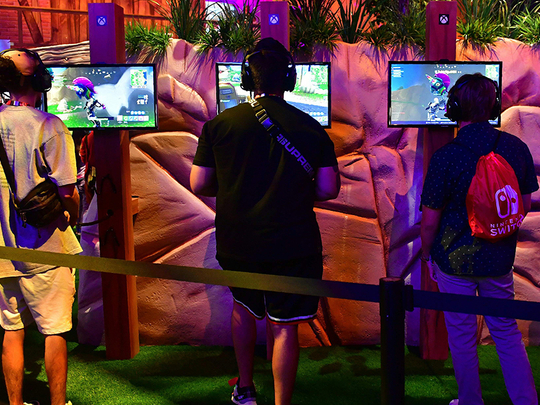
Video games work hard to hook players. And video game designers use predictive algorithms and principles of behavioural economics to keep fans engaged.
When new games are reviewed, the most flattering accolade might be "I can't put it down."
Now, the World Health Organization (WHO) is saying players can become addicted.
On Monday, "gaming disorder" will appear in a new draft of the organization's International Classification of Diseases, the highly regarded compendium of medical conditions.
Concerns about the influence of video games are dovetailing with increasing scrutiny over the harmful aspects of technology, as consumers look for ways to scale back consumption of social media and online entertainment.
What gaming addiction leads to
The WHO designation may help legitimise worries about video game fans who neglect other parts of their lives.
It could also make gamers more willing to seek treatment, encourage more therapists to provide it and increase the chances that insurance companies would cover it.
"It's going to untie our hands in terms of treatment, in that we'll be able to treat patients and get reimbursed," said Dr. Petros Levounis, chairman of the psychiatry department at Rutgers New Jersey Medical School.
"We won't have to go dancing around the issue, calling it depression or anxiety or some other consequence of the issue — but not the issue itself."
2.6 billion gamers
Around the world, 2.6 billion people play video games, including two-thirds of American households, according to the Entertainment Software Association.
Annual revenue for the industry is expected to grow 31 percent to $180.1 billion globally within three years.
"Fortnite"— the latest blockbuster, in which players battle to be the last one standing in an apocalyptic storm — recently earned a reported $300 million in a month.
This week, a nine-year-old girl was reported by Daily Mail to be placed in rehab as she became addicted to “Fortnite”.
The girl who was so addicted used to wet herself playing the game, as she didn’t want to get up and use the toilet cause she couldn’t let herself away from the screen.
Intensive therapy
The girl who is now in intensive therapy to fight her addiction, used to play for more than 10 hours a day, and once attacked her father when he tried to limit her playing time and confiscate her Xbox.
The girl's mother told Matthew Barbour for the Sunday People: "We had no idea, when we let her play the game, of the addictive nature or the impact it could have on her mental health."
The industry has pushed back against the WHO classification, which is expected to be formally adopted next year, calling it "deeply flawed" while pointing to the "educational, therapeutic and recreational value of games."
But gaming has long had an addictive quality.
The game "EverQuest," introduced nearly 20 years ago, was nicknamed EverCrack for the long binges it inspired.
Now, mental health professionals say they increasingly see players who have lost control.
"I have patients who come in suffering from an addiction to "Candy Crush Saga," and they're substantially similar to people who come in with a cocaine disorder," Levounis said. "Their lives are ruined, their interpersonal relationships suffer, their physical condition suffers."
Wilderness camps, rehab centres
Wilderness camps and rehabilitation centers have sprung up, but can cost tens of thousands of dollars, with scarce proof of success. Mental health generalists are trying to apply familiar therapies for anxiety or alcoholism to patients with an uncontrollable craving for, say, "World of Warcraft."
Six patients, usually men, are initially placed at a rural retreat and weaned off electronics while being taught how to socialize and exercise.
ReStart, which is nearly a decade old, started a program for adolescents last year.
Hilarie Cash, a co-founder, said she was working to develop a certification program for addiction disorders including internet and gaming dependency. When she speaks at mental health conferences, she said, she often sees counselors "taking notes like mad."
Addiction therapists are "getting called more often" about gaming disorder, Cash said, and many are "kind of tacking it onto what they already offer."
"They're trying to learn as best they can," she said.
- With inputs from Sara Al Shurafa, News Web Editor












